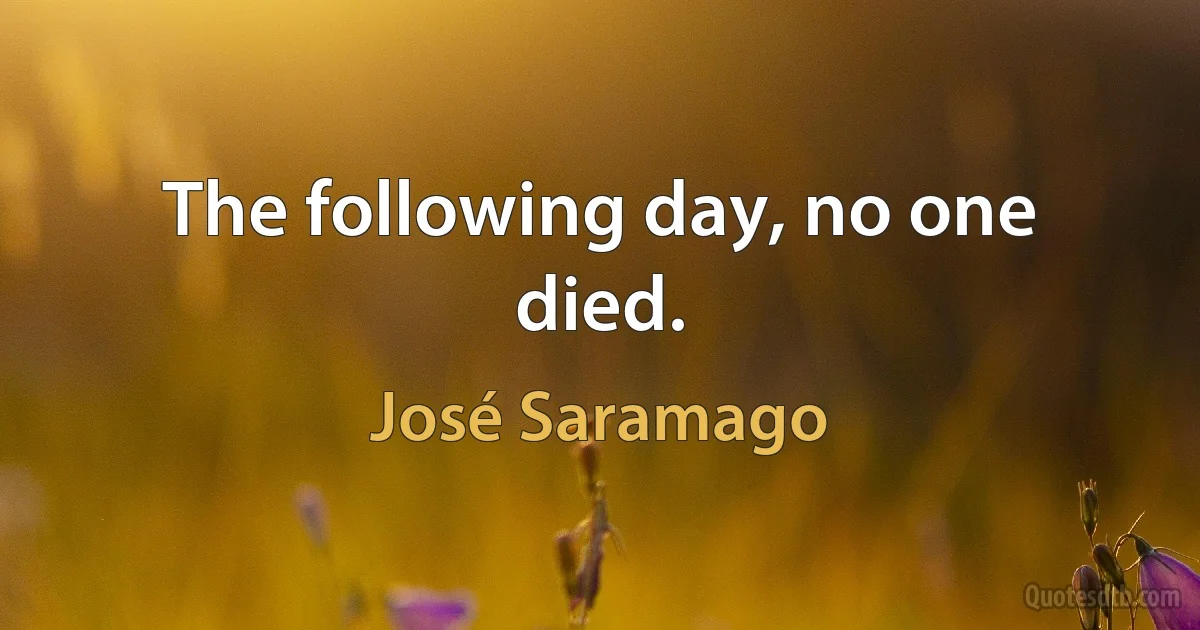Following Quotes - page 19
My present opinion favors the following disposition of the troops for winter-quarters. The garrison here should consist of Patterson's, Learned's, Clinton's, and the North Carolina brigades, which, I believe, will forma force sufficient for the purpose. If the horse is posted in Connecticut, as seems to be thought on, I think the troops coming from Rhode Island, in con junction with the horse, will form a sufficient covering party for the exposed parts of Connecticut and Westchester. I would only wish Clinton's brigade to be here, because it may interest the inhabitants to furnish supplies in the winter, and to encourage the militia to turn out with spirit, should the enemy make a sudden move towards the post. The connection between the army and country will have an influence in both these respects.

Nathanael Greene
We wish to continue in following up the legacy of the Second Vatican Council whose wise regulations have still to be led to their fulfilment, being careful that a push, generous perhaps, but unduly timed, does not detract from the content and meaning of the council, and on the other hand being careful and reined and timid efforts do not slow up the magnificent drive of renewal and of life.

Pope John Paul I
Yet if the only form of tradition, of handing down, consisted in following the ways of the immediate generation before us in a blind or timid adherence to its successes, "tradition" should positively be discouraged. We have seen many such simple currents soon lost in the sand; and novelty is better than repetition. Tradition is a matter of much wider significance. It cannot be inherited, and if you want it you must obtain it by great labour. It involves, in the first place, the historical sense, which we may call nearly indispensable to anyone who would continue to be a poet beyond his twenty-fifth year...

T. S. Eliot
Then it seemed as if men must proceed from light to light, in the light of the Word,
Through the Passion and Sacrifice saved in spite of their negative being;
Bestial as always before, carnal, self seeking as always before, selfish and purblind as ever before,
Yet always struggling, always reaffirming, always resuming their march on the way that was lit by the light;
Often halting, loitering, straying, delaying, returning, yet following no other way.

T. S. Eliot
.. that the Army is using defoliants in Honduras to create fire-free zones. This charge has been strongly denied by the Pentagon. Asked to comment just prior to leaving for Hawaii, where he will convalesce for the next two or three weeks, Prexy said, quote, Well, if you can't see them you can't shoot them. End quote. Support has been growing for a bill which Senator Richard Howell will introduce at the earliest opportunity, forbidding the issue of a passport to any male between sixteen and sixty not in possession of a valid discharge certificate or medical exemption. Welcoming the proposal, a Pentagon spokesman today admitted that of the last class called for the draft more than one in three failed to report. Your steaks are going to cost you more. This warning was today issued by the Department of Agriculture. The price of animal fodder has quote taken off like a rocket unquote, following the mysterious...

John Brunner
If we recognize, following the materialist theories, that only the physical nature exist, and that man contain ("renferme", Fr.) no higher essence, divine, which, by one side of his being, raise (promote or improve...) him above his animal nature, it would be a question ("il ne saurait être question", Fr.) neither of obligation, nor of moral responsability; then the supreme good would consist for him, indeed, to satisfy his appetites and his natural inclinations (fondness or partiality, -"penchant", Fr.), to look for the pleasure and flee from (scud, shun, avoid, -"fuir", Fr.) pain. In this case, there could be neither religion nor moral, since religion is precisely what raise man above vulgar (or common, - "vulgaire", Fr.) reality, and that moral is the very negation of selfishness.

African Spir
In general, we look for a new law by the following process: First we guess it. Then we – now don't laugh, that's really true. Then we compute the consequences of the guess to see what, if this is right, if this law that we guessed is right, to see what it would imply. And then we compare the computation results to nature, or we say compare to experiment or experience, compare it directly with observations to see if it works. If it disagrees with experiment, it's wrong. In that simple statement is the key to science. It doesn't make any difference how beautiful your guess is, it doesn't make any difference how smart you are, who made the guess, or what his name is. If it disagrees with experiment, it's wrong. That's all there is to it.

Richard Feynman
When I began the following Work, my only object was to extend and explain more fully the Memoir which I read at the public meeting of the Academy of Sciences in the month of April 1787, on the necessity of reforming and completing the Nomenclature of Chemistry. While engaged in this employment, I perceived, better than I had ever done before, the justice of the following maxims of the Abbé de Condillac, in his System of Logic, and some other of his works. "We think only through the medium of words.-Languages are true analytical methods.-Algebra, which is adapted to its purpose in every species of expression, in the most simple, most exact, and best manner possible, is at the same time a language and an analytical method.-The art of reasoning is nothing more than a language well arranged."

Antoine Lavoisier
It was a perpetual holiday – and what an assortment of people. You could still enjoy yourself in those days! Machinery didn't take up the whole of life; there was time for living, and we made the most of it... I found as many magnificent girls to paint as I wanted; in those days one wasn't reduced to following a little model around for an hour and then being treated as a disgusting old man at the end of it.

Pierre-Auguste Renoir
Only party hacks and the ambitious, the Henry's of this world following on the heels of the Milliéres, the grotesque imitators of the Commune of 1793.. .What an encouragement all these bloodthirsty caperings are for the arts! But there is at least one consolation in our misfortunes: that we're not politicians and have no desire to be elected as deputies.

Édouard Manet
We cannot have the government or the Labor party go to the next election with a person leading the party and a person floating around as the potential alternative leader. Anybody who enters the ballot tonight should do it on the following conditions: that if you win you're Labor leader, that if you lose you retire from politics.

Julia Gillard
The people's community must not be a mere phrase, but a revolutionary achievement following from the radical carrying out of the basic life needs of the working class. A ruthless battle against corruption! A war against exploitation, freedom for the workers! The elimination of all economic-capitalist influences on national policy. Maintaining a rotten economic system has nothing to do with nationalism, which is an affirmation of the Fatherland... The sin of liberal thinking was to overlook socialism's nation-building strengths, thereby allowing its energies to go in anti-national directions.

Joseph Goebbels



